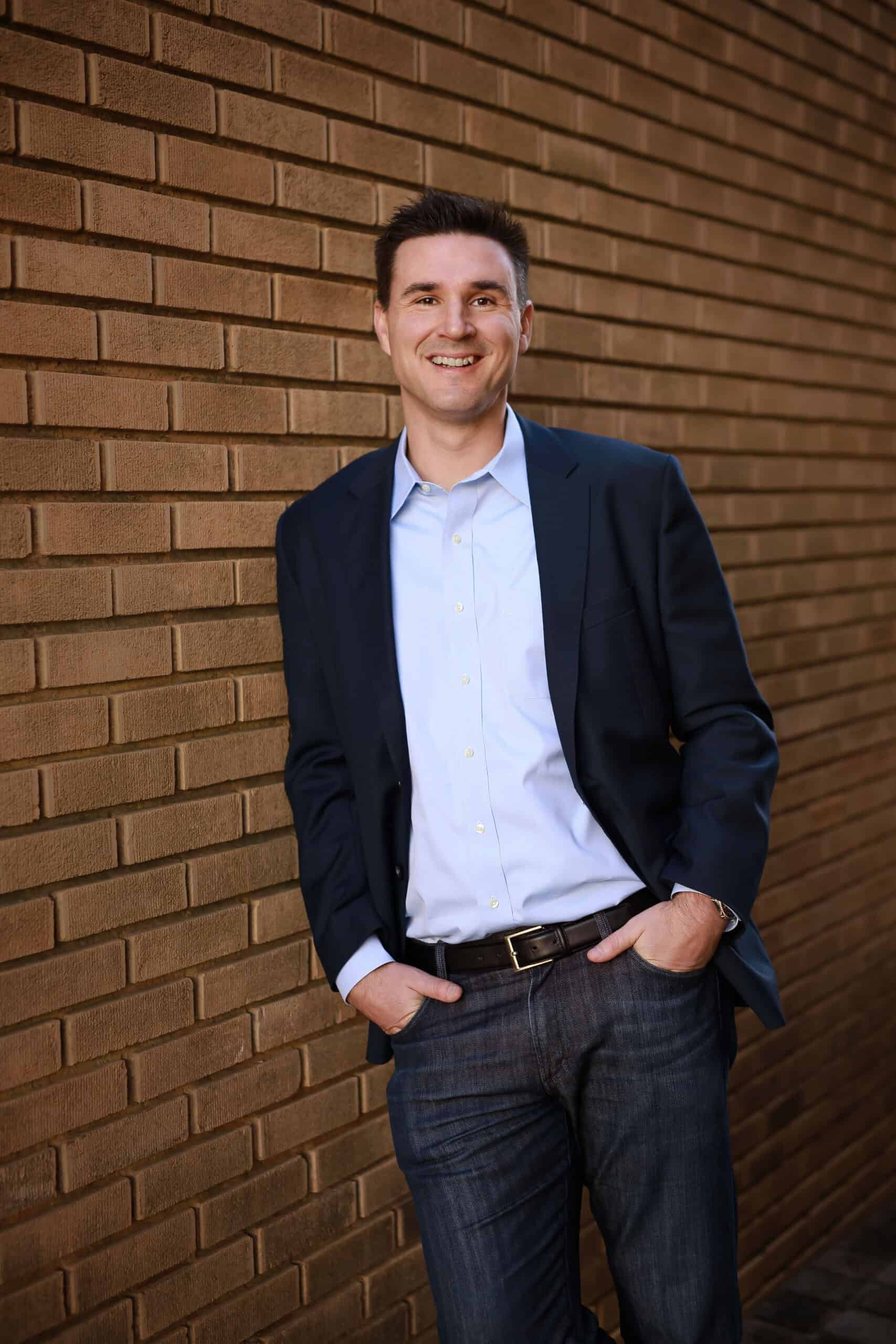Thank you so much for joining us in this interview series. Before we dive into our discussion, our readers would love to “get to know you” a bit better. Can you share with us the backstory about what brought you to your specific career path?
About 25 years ago, I found my passion for data and technology, which I decided to build a company around. During that time, I have been able to work with organizations around the world in helping them leverage technology to solve their business problems with data. Now most companies are focused on how to capture and analyze more data about their customers and systems and translate that into value and information to make the next million-dollar decision.
What do you think makes your company stand out? Can you share a story?
Early on, we made the decision to have our enterprise take on risky, complex, and high-number projects within the world of data. By doing that, our company has gained a unique expertise and viewpoint that many other data providers do not have. Couple that with the fact that we support enterprise data services 24/7, which enables our team to really understand what it takes to run a business, not just build a single complex project around data. By merging both the decision with the next-generation solutions and then supporting those solutions, we have approached solving problems differently because we eat our own dog food, per se.
You are a successful business leader. Which three character traits do you think were most instrumental to your success? Can you please share a story or example for each?
Taking risks – In business, you must make many decisions and some are black and white, while others are a transformational decision. But you must be decisive and learn from each decision.
- My most recent decision was to start another company to fill a gap in the marketplace. That was made more risky by the fact that I was in Tel Aviv in February 2020, right before COVID. When I flew back and the world shut down, I had to evaluate the impact but decided to move forward with building out our new product, WISdom.
Creativity – So many times in business, we think logically and are always focused on the execution or the next task. But the real exponential growth has come by thinking about what is possible and being creative and curious in the world around us. Seeing that gap in the marketplace or solving that business problem in a unique way that is counter to what others are doing.
Flexible – By creating new solutions and taking risks, I have had to be flexible, as there are many unknowns when innovating and taking chances. Until you test that idea, you do not know the impact or output of the action, let alone many times it will not yield the outcome you desired. Being flexible is a pillar in not only
innovation but in business,as the business will throw so many curve balls at you.
Let’s now move to the main point of our discussion about AI. Can you explain how AI is disrupting your industry? Is this disruption hurting or helping your bottom line?
In technology, AI has changed the industry with the biggest impact around code generation and allowing developers to get information more quickly. Our developers can now code faster and better by leveraging many of the copilots that exist today. This is enabling our teams to solve issues faster and build better applications for our clients. Based on what I see, this is only the beginning, and there will be a bigger disruption in the technology as we as a whole determine the capabilities of AI.
Which specific AI technology has had the most significant impact on your industry?
Copilot, I believe, will have the biggest short-term impact on the industry as code generation and other related services around application development will continue to mature. This will require the developers and architects of applications to think differently on how applications are designed, built, tested and deployed to production.
Can you share a pivotal moment when you recognized the profound impact AI would have on your sector?
In December 2022, when my developer showed me some of the new AI technology that was just released in November around OpenAI. Once I saw the auto-completion of code and writing the next several sections, I knew this was the beginning of both enabling developers but also a start of a big shift.
How are you preparing your workforce for the integration of AI, and what skills do you believe will be most valuable in an AI-enhanced future?
Awareness of AI’s strengths and weaknesses is our big focus today as it cannot do everything well. We are using different AI services within our company to accelerate and gain efficiencies across many areas of the business. Data is the other important area that we are focused on maturing as we will be building out our own models in the future.
The skills we are focused on are data engineers and integration experts to capture more data and connect the systems internally and externally.
What are the biggest challenges in upskilling your workforce for an AI-centric future?
Just like me, the biggest challenge is going to be learning more about AI’s architecture and capabilities so we can build AI solutions that solve business problems. The other challenge will be understanding and prepping the data that will train the models along with training the models. Based on our experience, training the AI models was different
than our expectations and we had to adapt and learn new skills.
What ethical considerations does AI introduce into your industry, and how are you tackling these concerns?
Our background is data, and we see the challenges most organizations have around their data implementations today. The challenges range from a lack of understanding of the data to inaccurate data along with many more issues. If we were to train a model based on the current state, the model would be providing inaccurate and/or biased
results. At Fortified, we are working with many organizations around creating and updating their enterprise data strategy. By having a solid data strategy, they will be in better positions for leveraging AI and data analytics in the future.
What are your “Five Things You Need To Do, If AI Is Disrupting Your Industry”?
1 . Determine what AI is great at today and start to leverage those services for your company.
- We have signed up for several services today to try them out. From image generation to content writing, we are seeing the limits of what is possible.
2. Create an enterprise data strategy so you are prepared to build your own models.
- We are working with several companies now on how to prepare their data and technology teams to leverage AI.
3. Be open to rethinking how processes are performed in your company so you can leverage your talent for other value-added roles.
- Code generation is enabling the team to support the clients faster. Another benefit of GPT is translating a technology concept into business terms for our strategic account manager, who can understand the concept and
communicate to the business.
4. Think about what new AI products or offerings you can create.
- We are designing several services that are enabling our team to better scale and service the clients.
5. Know what and how your competitors are leveraging AI. Talk to them and go to conferences to see how others are applying the technology.
- I have been spending a lot of time talking to companies about how they are using the technology. It has been so interesting in both the problems they are solving and what challenges they are having implementing their solution.
What are the most common misconceptions about AI within your industry, and how do you address them?
There are a couple that come to mind. AI is not going to take your job tomorrow, but it will potentially change what your job is. Embrace the change just like we embraced the internet, RPA, and other technologies that enabled us to do more, higher-value functions. The second is AI will solve everything and take over the world. Not anytime soon, as we are still trying to not drop cell-phone calls or achieve autonomous driving. AI will impact the world, and we do need to be cautious about defining guardrails, but think about how AI will enable you in 2024 and beyond.
Can you please give us your favorite life lesson quote? Do you have a story about how that was relevant in your life?
Keep it SIMPLE, stupid – so many times we think complex solutions are needed to solve the problem. Over the years, I have reviewed the designs and code of many systems around the world, and it is always amazing what technology solutions run the bigwebsite.com or other critical services that support our lives. When you look behind the curtain, I have seen overly complex designs and code that frankly can be a lot more simple and efficient. Speaking of efficiency, I just wrote a book called, End of Abundance in Tech,which talks about efficiency and the cost of technology because those complex, over-engineered systems are costing enterprises millions more each year.
Off-topic, but I’m curious. As someone steering the ship, what thoughts or concerns often keep you awake at night? How do those thoughts influence your daily decision-making process?
I often think about how inefficient our government is around immigration and many other areas. We have this great education system, but when the students graduate and other great people from other countries want to enter our country, we make it nearly impossible for them to do this. By educating people and not enabling them to stay here,
we are limiting our growth as a country. This is also an important time for many companies as we are trying to promote and support different genders and minorities, but if we turn them away from the country, we will not have the best pool of people to choose from. We were all immigrants at one time or another in our family tree.
You are a person of great influence. If you could start a movement that would bring the most amount of good to the most amount of people, what would that be? You never know what your idea can trigger. 🙂
Provide education to all people, but leverage technology, new programs and internships outside of the costly four-year universities system. At no other time in history has information been more accessible to everyone, but we need to enable people to gain access to information and mentorships. This effort needs to be coupled with companies being willing to hire people without a piece of paper, but focus on the skills and aptitude of the individual.
How can our readers further follow you online?
Email: [email protected]
Personal website: www.bendebow.com
Company websites: www.fortifieddata.com and www.fortifiedinsight.com
Twitter: @bendebow
LinkedIn: www.linkedin.com/in/bendebow/
Podcast: https://forbesbooksaudio.com/shows/techevaluation/
Forbes: www.forbes.com/sites/forbesbooksauthors/people/bendebow/
Thank you for the time you spent sharing these fantastic insights. We wish you only continued success in your great work!

